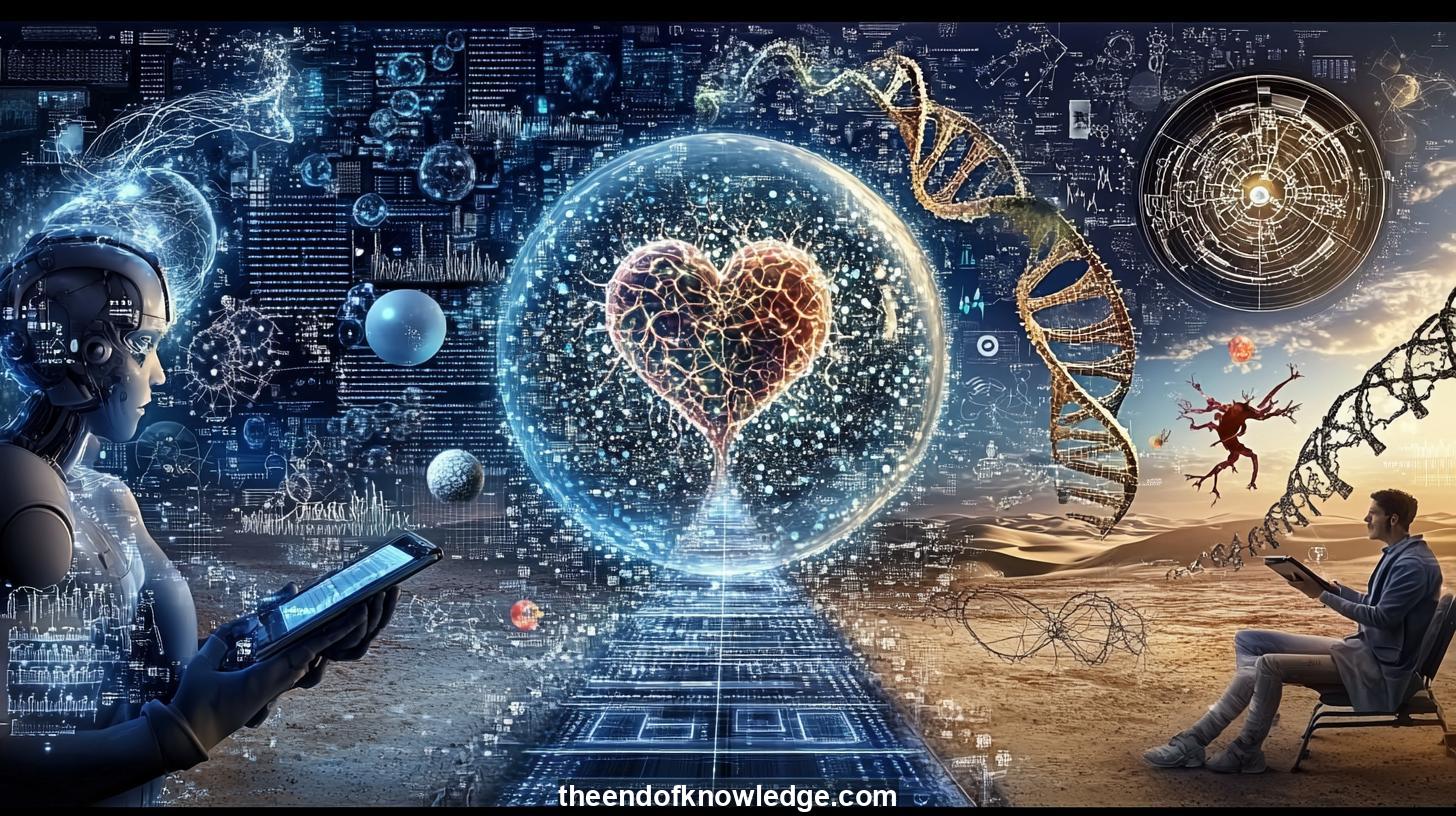 >
>
Concept Graph, Resume & KeyIdeas using DeepSeek R1 :
Resume:
The discussion revolves around the intersection of artificial intelligence (AI) and artificial life, exploring their implications for humanity. Regina Laurent presents her work on embryonic development, highlighting the role of AI in analyzing embryonic processes and predicting viability. The conversation delves into ethical dilemmas, such as the potential for AI to influence human reproduction and the boundaries between human and artificial life. Participants discuss the philosophical implications of creating life artificially, referencing concepts like transhumanism and the Singularity. The debate also touches on the societal and ethical challenges of integrating AI into medicine and the potential risks of unchecked technological advancement. The discussion emphasizes the need for a balanced approach, combining scientific curiosity with ethical responsibility, to navigate the future of AI and artificial life.30 Key Ideas:
1.- Regina Laurent discusses embryonic development and AI's role in analyzing viability.
2.- AI systems analyze morphokinetic parameters to predict embryonic success.
3.- Ethical concerns arise about AI's influence on human reproduction and life creation.
4.- Participants debate the boundaries between human and artificial life.
5.- The discussion touches on transhumanism and the potential for human evolution through technology.
6.- The Singularity theory suggests a future where AI surpasses human intelligence.
7.- Ethical considerations include the potential for AI to disrupt natural biological processes.
8.- The role of AI in medicine raises questions about data privacy and algorithmic bias.
9.- Experts emphasize the need for ethical guidelines in AI development and deployment.
10.- The conversation highlights the importance of balancing scientific progress with societal responsibility.
11.- AI's integration into reproductive medicine could revolutionize fertility treatments.
12.- The discussion explores the potential for AI to enhance human capabilities and longevity.
13.- Participants reflect on the philosophical implications of creating artificial life.
14.- The debate considers the societal impact of advanced AI systems on human identity.
15.- The need for interdisciplinary collaboration in AI research is underscored.
16.- Ethical frameworks must address the potential for AI to exacerbate social inequalities.
17.- The discussion touches on the role of AI in understanding and replicating biological processes.
18.- Experts discuss the challenges of ensuring AI systems align with human values.
19.- The potential for AI to solve complex medical problems is highlighted.
20.- The conversation emphasizes the importance of public engagement in AI ethics.
21.- Participants explore the intersection of AI and spirituality in shaping human identity.
22.- The debate considers the long-term consequences of creating autonomous AI entities.
23.- The discussion reflects on the historical context of AI development and its future trajectory.
24.- Experts discuss the need for global cooperation in regulating AI technologies.
25.- The conversation highlights the importance of education in preparing society for AI advancements.
26.- Participants explore the potential for AI to enhance human creativity and innovation.
27.- The discussion touches on the ethical implications of AI in decision-making processes.
28.- The role of AI in addressing global challenges like climate change is considered.
29.- Experts emphasize the need for transparency in AI development and deployment.
30.- The conversation concludes with a call for responsible innovation in AI and artificial life.
Interviews by Plácido Doménech Espí & Guests - Knowledge Vault built byDavid Vivancos 2025